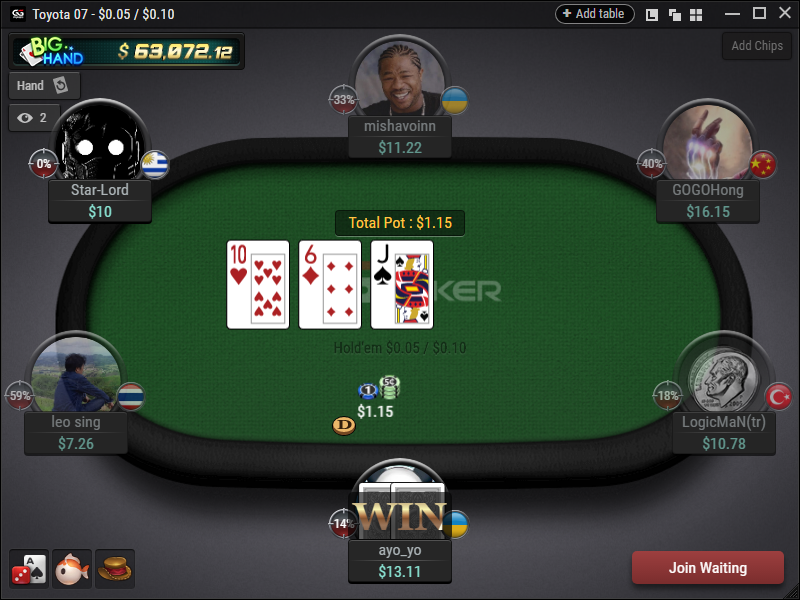Online poker offers a platform where individuals can begin to learn and play. This environment presents a set of rules, strategies, and interactions that new players will encounter. For those starting out, online poker provides a structured approach to understanding and enjoying the game.
Understanding Poker Rules
Beginning online poker starts with grasping the rules. This encompasses knowing the hand rankings, the sequence of betting, and the general structure of the game. A solid understanding of these rules forms the base for playing the game.
Choosing an Appropriate Online Platform
Selecting a suitable online poker platform is a step beginners need to navigate. Factors to consider include the ease of use of the platform, security measures in place, and the variety of games offered. The right platform can make the learning process smoother.
Engaging in Low Stakes Games
For newcomers to poker, engaging in low-stakes games offers a practical way to gain experience. These games allow beginners to play real hands with a reduced risk of significant financial loss.
Leveraging Free Resources and Tutorials
Many online poker sites provide free resources and tutorials. These can include guides, instructional videos, and the option to play practice hands. These tools are useful for developing a deeper understanding of the game.
The Art of Bankroll Management
Managing a bankroll is a skill that beginners should develop early on. This involves playing within financial limits and not risking more than one can afford to lose. Effective bankroll management can prolong a player’s ability to play and enjoy the game.
Understanding Betting Patterns
Learning to read betting patterns is beneficial for beginners. This skill helps in making informed decisions based on how others at the table are betting, which can indicate the strength of their hands.
The Importance of Position in Poker
Position in poker, or where a player sits in relation to the dealer, affects gameplay. Beginners should learn how position influences their play and how they can use it to their advantage.
Learning From Every Game
Every game of poker, win or lose, offers learning opportunities. Beginners should reflect on their play to understand what worked and what didn’t, helping them improve over time.
Exploring Different Types of Poker
Online poker offers various types of games, such as Texas Hold’em, Omaha, and Seven-Card Stud. Beginners might find it beneficial to explore these different types to find the one that suits their style.
Joining Online Poker Communities
Online poker communities can be valuable for beginners. These communities offer a space to discuss strategies, share experiences, and seek advice, contributing to a beginner’s growth in the game.
For those looking to start their journey and play poker games online, the online poker world offers a range of resources and opportunities. Engaging in this digital environment can provide a fulfilling and enjoyable poker experience.
Developing a Strategic Mindset
Developing a strategic mindset is beneficial for beginners in online poker. This involves thinking ahead, planning moves based on the current situation, and anticipating opponents’ actions. Cultivating this mindset helps beginners transition from novices to more strategic players.
Recognizing and Responding to Bluffs
Understanding the concept of bluffing and learning to respond effectively is another critical aspect of poker. Beginners should learn how to recognize possible bluffs and decide the best course of action, whether to challenge or fold. This skill becomes sharper with experience and observation.
Utilizing Software Tools for Improvement
Various software tools are available to help beginners improve their poker skills. These tools can range from hand history analyzers to odds calculators, providing valuable insights into gameplay and strategy. While not a replacement for actual experience, these tools can supplement learning and development.
Balancing Aggression and Caution
Finding the right balance between aggression and caution is a key skill in poker. Beginners should learn when to take risks and when to play it safe. This balance is crucial in making effective decisions that can lead to successful outcomes in the game.
Conclusions
The journey for online poker beginners involves several key steps: understanding the rules, choosing the right platform, starting with low stakes, using educational resources, managing finances, recognizing betting patterns, leveraging positional play, learning from each game, exploring game varieties, and participating in online communities. Each of these elements plays a role in developing a beginner into a skilled and informed poker player.

